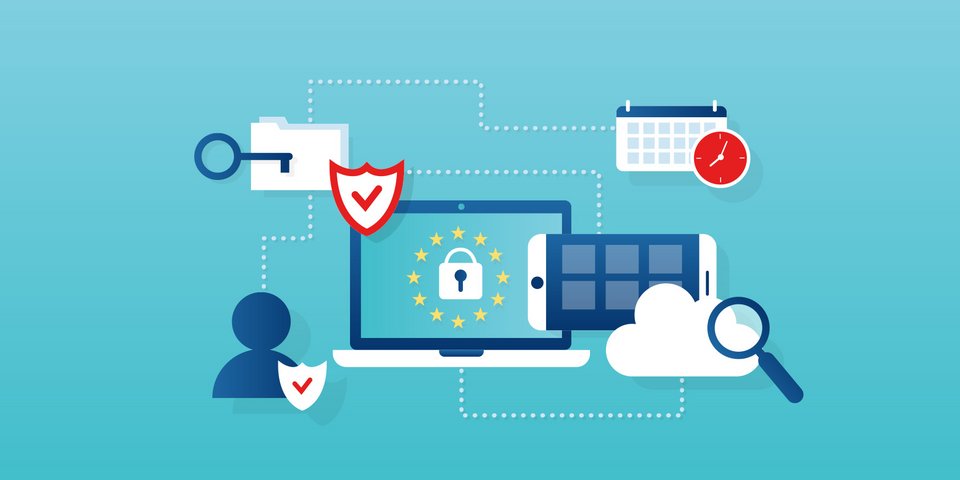 iStockphoto/Feodora Chiosea
iStockphoto/Feodora ChioseaEuropean Commission has published its draft regulation about the European Health Data Space
European Parliament's lead committee: civil liberties, justice and home affairs
CC – 05/2022
The European
Commission presented
its draft regulation about an EHDS (European Health Data Space) on May 3.
The European Commission wants to
improve the pooling and cross-border use of health data and make this mandatory
through a new regulation. Insured persons should have digital access to their
own treatment data and be able to decide on its “cross-border” use. Health data
should also be made more usable for research, innovation, and policy-making.
Primary use of electronic health data
Digital patient summaries and e-prescriptions
should be exchanged under the already existing MyHealth@EU data infrastructure
as part of primary data use. This will be followed by the exchanging of medical
image data, laboratory results and discharge reports as well as other health
data that has yet to be determined. Data exchanging should be enabled through
establishing a central digital health platform at European Comission level and
the NCPs (National Contact Points) that exist within the member states. The
NCPs connect all of the health care providers and pharmacies.
The draft regulation will also require
member states to designate a central digital health authority that will be
responsible for implementing primary data exchanging. There are also plans to
harmonise e-patient record systems and to create rules for placing them on the
market. "Wellness apps" should also receive a voluntary conformity
label as health apps in addition to the mandatory self-certification of
e-patient record systems. This certification should document the fact that
health app data can be fed into a patient’s record.
Secondary use of electronic health data
A new and decentralised EU data
infrastructure called HealthData@EU is to be established for secondary data
usage. The new health data access points that will be established in member
states would manage health data access requests, publish data catalogues and
collect fees for approved data sets. In principle, all natural people and legal
entities should be able to submit an application for use. The data
authorisation will specify how and for what purpose the data may be used.
Basically, electronic health data should be made widely available across
borders for research, innovation, making policy or regulatory decisions,
developing artificial intelligence as well as personalised medicine. This data
can only be accessed by users anonymously or if pseudonymised in exceptional
cases. Third countries may also access the health data.
European governance and coordination work
is to be implemented after an EHDS Board ("European Health Data Space
committee") has been established. Chaired by the European Comission, the
representatives from the national bodies will meet there and discuss further
specifications. Other stakeholders such as patient associations and
"relevant third parties" will also play a monitoring role in addition
to the data protection and market monitoring authorities.
Patient care must be the main focus
The published regulations could deeply interfere
in how member states have organised their telematics infrastructures and
patient record systems. The commission's proposals also go a long way with
regard to using electronic health data for research, innovation, policy-making,
regulatory decisions and personalised medicine.
One thing is certain for the German Social
Insurance (DSV) here: EHDS must be about the best possible care for patients –
on the one hand with improved cross-border care using digital access to health
data and on the other hand, using knowledge gained through the improved data
situation, e.g. in the case of rare diseases.
DSV is committed to ensuring that the right
balance is struck in the EHDS between networking national and pan-European
telematics infrastructures – whereas national TI structures must be adequately
protected as well. It is also important to apply the data protection
regulations (GDPR) and the decentralised provision of anonymised data. This
data should be held in a decentralised way yet be meaningfully retrievable for
public benefit purposes that will improve the health care of patients. The EHDS
is not intended to be an industry promotion instrument, but rather to serve
cross-border healthcare for patients and to create real added health value (see DSV
statement about the roadmap).
Long negotiations are expected
The European Parliament and the member states in
the Council will now discuss the contents following the European Commission's
draft legislation. The European Parliament and the Council will each prepare a
position. A compromise will then be negotiated during the inter-institutional
negotiations, the so-called trialogue. The committee for Civil Liberties,
Justice and Home Affairs (LIEBE) will oversee the dossier in the European
Parliament. The Public Health and Food Safety committee will contribute as a
co-advisory committee. This decision will be based on the chosen legal basis of
the draft regulation (Articles 16 and 114 TFEU) and it will bring data
protection and internal market issues to the fore. This will be painful for
health care policymakers, whose focus should be on improving health care.
